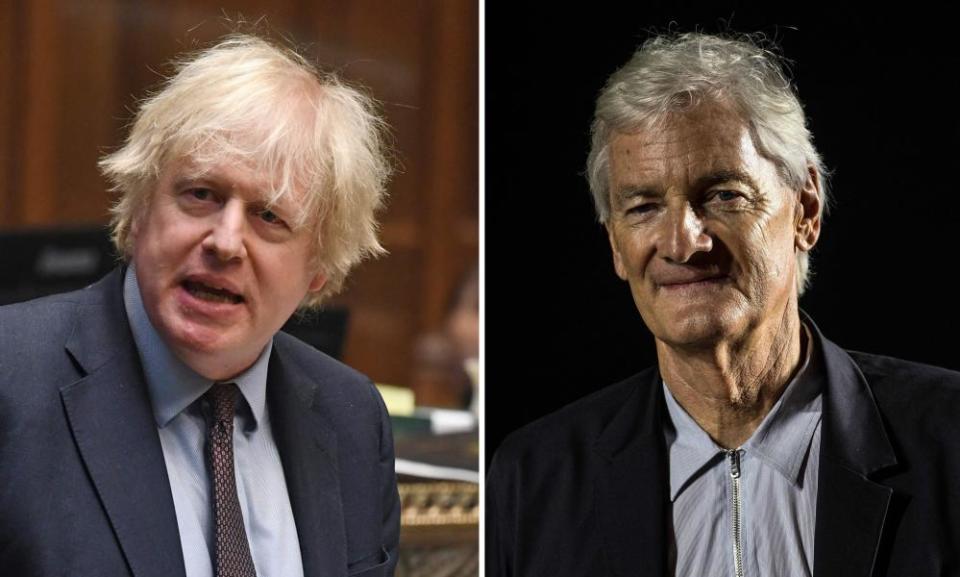Did Boris Johnson break ministerial code over James Dyson tax texts?

The publication of text messages between Boris Johnson and James Dyson, in which the prime minister offers to “fix” some tax affairs for the businessman as his company built ventilators to help with the Covid response, has once again turned attention to rules on lobbying and transparency.
Did Johnson break any rules?
The ministerial code, the official 36-page guide to what is expected of ministers and the prime minister, sets out that a private secretary or another official “should be present for all discussions relating to government business”. If a minister “finds themselves discussing official business without an official present”, they should report any “significant content” as soon as possible, it says.
While Labour says it suspects the exchanges with Dyson breached the ministerial code, Johnson’s spokesperson has said the PM alerted officials afterwards, and then had officials work on the tax advice, and so did nothing wrong.
Some ministers have fallen foul of the rules on unofficial meetings. In 2017, Priti Patel was sacked as international development secretary after it emerged she had not kept Theresa May properly informed about unofficial meetings with politicians and businesspeople while on holiday in Israel.
Should Johnson have declared the texts?
This is a parallel issue connected to the ministerial code. It states that “external meetings” should be formally declared in a quarterly list of such events, published by the Cabinet Office. Some critics of the rules have argued this wording is out of date, and should explicitly include more informal contacts such as messages or phone calls.
What is clear is that the Dyson contact was not officially released. The list of Johnson’s meetings from January to March 2020, the period which included the texts, had no mention of the entrepreneur’s name. Thus, even if the exchanges were allowed under the ministerial code, they would not normally be known to the public, which raises issues of transparency.
How can such contacts be discovered?
For the last decade, ministers’ text messages and email on non-government addresses can be accessed via freedom of information requests. It followed a long battle by the Financial Times over the use of personal email addresses by Michael Gove when he was education secretary, and his then-adviser, Dominic Cummings. The BBC, which reported the Johnson-Dyson text messages, has not specified how it saw them.
Related: Boris Johnson says he will publish text messages to James Dyson
One potential loophole to evade FoI rules could be ministers using apps that can be set so messages are automatically deleted, for example after seven days. Transparency campaigners have called for this to be banned for ministers.
Did Dyson break any lobbying rules?
It would appear not. While what he did would very much count as lobbying, the controversy over David Cameron’s repeated texting of ministers to assist Greensill Capital has highlighted what some argue is a weakness of rules over lobbying – they only cover external lobbyists. Since Cameron was officially an adviser to Greensill, his actions did not formally count as lobbying. The same would seem the case for Dyson.

 Yahoo News
Yahoo News 